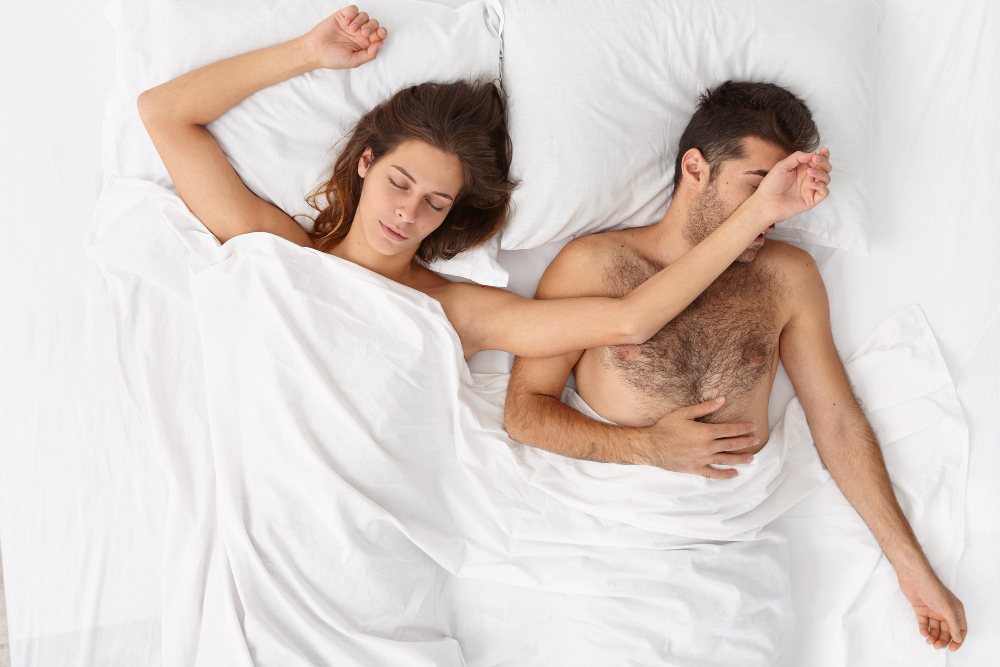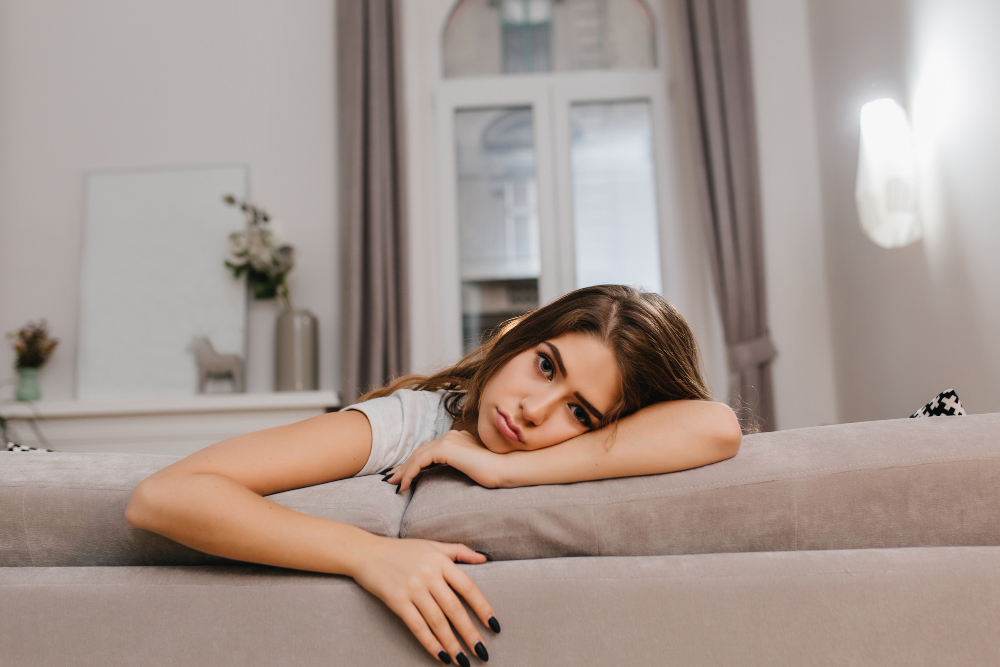Lack of sleep and poor sleep can make you tired, irritable and moody. When you are tired, you may have difficulty concentrating, remembering things, working efficiently and coping with everyday stresses. You may be less patient with family and friends.
Difficulty falling asleep and staying asleep can lead to even more stress, which can make sleep problems even worse. Adequate sleep is necessary for good health.
Also read: Do you always dream of the same person? Here’s what it really means
You’ve had enough sleep when you can function in a state of alertness during waking hours. Most adults need between 7 and 9 hours of sleep each night. During the menopause transition, you may find that you have more trouble falling asleep, staying asleep, or waking up feeling refreshed.
These interventions can improve your sleep!
# Maintain an environment that promotes sleep. Think quiet, cold and dark. A white noise machine can be helpful. If you sweat at night, try keeping a fan by your bed (and turn it on as needed), light pajamas and sheets, and putting ice under your pillow — turning your pillow over at night so your face rests on the cool side.
Also read this: Massage against insomnia
# Try relaxation techniques such as meditation or slow deep breathing exercises. You can learn these techniques through books, videos, and classes.
# Avoid TV, computer screens, smartphones and e-readers at least an hour before bedtime, as the light from these devices can disrupt sleep.
Also read this: How to get rid of tension in the neck and shoulders?
# Follow the 15 minute rule. If you don’t fall asleep within 15 minutes, get up, leave the bedroom, and do something relaxing in another room, such as reading a book or magazine or listening to soft music. Go back to bed when you are sleepy.

# Follow a regular sleep routine. Try to wake up and go to bed around the same time every day, even on weekends.
# Use the bedroom only for sleeping and sex.
Also read this: Everything you need to know about insomnia
# Avoid stimulants such as alcohol, caffeine and nicotine throughout the day, not just in the evening. Although alcohol initially acts as a sedative, it often leads to disturbed sleep.
The stimulating effects of caffeine can last up to 20 hours. Coffee, tea and cola are not the only culprits. Many pain relievers, diuretics, allergy and cold medications, and weight control products contain caffeine.
Also read this: How to start energy in winter
# Avoid eating a large meal or sweets right before bed. This can disrupt sleep — and also promote weight gain.

# If your sleep is disturbed by your partner’s late-night activities or snoring, talk about how it affects your sleep and think about solutions. Snoring can be a sign of sleep apnea, so your partner may benefit from seeing his or her general practitioner to begin with.
Also read this: How hormones dictate changes in the body
# Exercise almost every day. Walk! Daily exercise improves sleep, but avoid strenuous exercise right before bedtime.
# If your sleep problems do not respond to lifestyle changes, consult your doctor about other treatment options and to rule out specific causes of sleep problems such as thyroid, abnormalities, depression, anxiety, allergies, syndrome restless legs or sleep apnea (breathing problems during sleep).
Also read this: Sitting – the greatest enemy of good health for women 35+
Women with serious sleep disorders may benefit from consultation with a sleep specialist.

# Herbs and supplements: melatonin, valerian, chamomile, lavender, lemon balm, and passion flower may be mildly sedative, although scientific data is limited. Government oversight of herbs and supplements is limited, so buy products manufactured and approved by your local Drug and Remedies Association.
Also read this: All diseases are also diseases of our immune system
# Over-the-counter sleeping aids: Many contain diphenhydramine (eg, Benadryl) and can help you fall asleep and stay asleep without interruption. Try low doses (25 mg or less) to reduce the risk of morning grogginess.
# Cognitive behavioral therapy (CBT): CBT is a specific form of psychotherapy that effectively treats many sleep problems.
Also read this: Women’s breasts – how to care for them and preserve their health
# Prescription sleep medications: Medications approved to treat sleep problems can be helpful to break the cycle of insomnia, but ideally should only be used as a short-term solution. Some result in morning fatigue, and over time can become less effective and habit forming.

Drowsiness associated with sleeping pills can increase the risk of falls, fractures, so try to avoid sleeping pills if you have an increased risk of falling.
# Treatments for night sweats: If you have annoying hot flashes and/or night sweats that interfere with your sleep, consider treating your nighttime symptoms to improve your sleep.
Also read this: CHAMOMILE, the oldest medicine of folk medicine: A mild and gentle way to protect our health
Effective treatments for night sweats include hormone therapy and non-hormonal medications such as certain low-dose antidepressants. Hormone therapy has other benefits and risks, so you should talk to your doctor to make sure that hormones or other medications that treat night sweats are right for you.
Also read this: Postmenopausal hormone replacement therapy and disease risk
# With any medicine you choose for sleep, always use the lowest dose that cures your sleep problem in the shortest amount of time.
Source: www.sitoireseto.com


